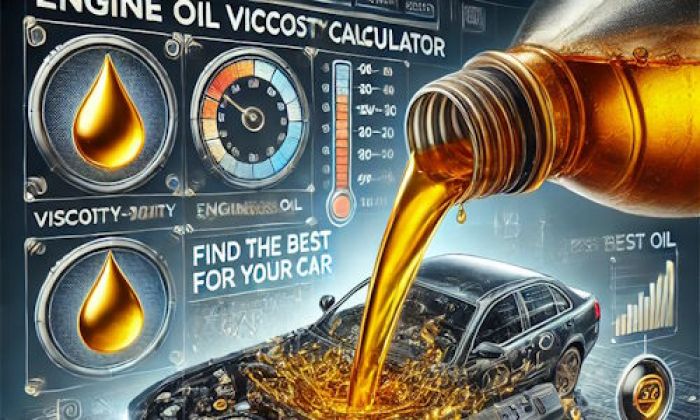The B58 engine is a relatively modern BMW engine with 3 liters of displacement. It has been used in performance-oriented models of the company and is still installed in several vehicles. The engine was presented in 2015 and was said by BMW to be a revolutionary machine for fast and pleasant driving.
Key facts and my opinion about the engine
- Production years: 2015-now
- Average lifespan of B58: 180,000-200,000 miles
- Fuel supply type: direct injection
- Power range: 326-388 hp
- Fuel efficiency: average
- Engine block material: aluminum
- Engine reliability score: medium
- The most common problems: coolant level mysteries, head gasket failure, carbon buildup on intake valves, VANOS issues.

Carbon contamination on valves in the B58
Recently I've already published an article telling you about the B58 engine with high mileage and some concerns you should think about when buying it used. Today, I will focus on carbon buildup and will explain to you why this problem happens, how you can solve it, and what the signs are that the engine needs your help.
First of all, let's see how exactly the carbon buildup forms in the engine.
The B58 is a 6-cylinder inline engine with 3 liters of displacement and up to 388 horsepower of power. This is a wonderful machine with a turbocharger. It looks pretty reliable but one problem is common for all B58 engines - this is carbon buildup.
Here's how it forms:
- the engine has a direct injection system which means the injectors send fuel directly into the combustion chamber;
- because of this, the fuel doesn't go through the valves (in engines with port injections it would because the fuel is injected into the intake manifold);
- so, the intake valves only let the air go through and they aren't washed by fuel at all, they always stay dry;
- after some time, high temperatures and some byproducts of combustion inevitably form some kinds of buildups on the body of intake valves;
- these buildups become harder over time and attract more buildups which then start interfering with how the valve closes;
- eventually, the valve can't close properly and the engine starts experiencing problems with the combustion process.
Such events cause poor compression in the cylinders because the intake valve can't close tightly and doesn't hold the compression. Also, the preciseness of different technologies like VANOS and Valvetronic drops dramatically and the engine becomes much less efficient than you expect it to be.
This is how carbon buildup is formed in the B58 engine. Whoever tells you that BMW finally solved this problem in this series of engines, you may be sure they lie. Or just don't know how this engine works.
The symptoms of carbon buildup in the B58
So, the B58 engine can develop this problem. But how will you know that it's time to go and have the valves cleaned in the shop? Usually, this doesn't happen before the vehicle is out of the warranty period. But I've seen BMW owners having the valves in their cars cleaned under warranty coverage. So, it may happen even earlier than you may expect.
A fair average valve cleaning interval is about 30,000 miles for all direct injection engines. But with the B58, I would do that a little more often. But you should also understand that the new engine will easily go about 50-60 thousand miles before it shows the first symptoms of carbon buildup.
Here are several important things to consider:
- You shouldn't wait till carbon buildup shows you several symptoms in your engine. This will mean that the engine is already suffering. Just routine valve cleaning service is needed.
- If you keep driving with bad carbon buildup on the valves of your B58, you may discover that the engine develops new problems along with the contamination.
- In the end, it may be much more complicated and expensive to repair this engine and it may even lead to fatal damage to the engine head.
So, here are the symptoms of carbon buildup in your B58 you should remember:
- the engine becomes less powerful, the acceleration may not be as smooth as before;
- the RPM goes up and down, the RPM needle is not standing still when idling;
- gas mileage goes worse - this is one of the clear symptoms of valve contamination;
- bad cold start - your engine may crank longer than usual and start poorly;
- check engine light with misfiring code (it may be P0300 or the code for a certain cylinder like P0303);
- engine vibration when idling;
- rough running and more sounds and vibrations overall when driving the car.
These are the most common symptoms of valve contamination in your B58 engine and you should remember them. Also, you should know that these symptoms don't come up at once. They will appear one by one and develop very slowly. This is the tricky thing because you will not instantly notice them - the car will change day by day and you may just keep driving it without noticing the issue.
It's important to notice the problem as soon as possible. So even a small thing like long cranking in the morning should make you pay more attention to simple features like gas mileage or acceleration quality.
How often will you need to clean valves in B58?
As said before, the valve cleaning is needed about once every 30,000 miles. But the first cleaning is needed at about 50-60 thousand miles. Sometimes, BMW owners clean their engines for the first time at about 100K miles. This depends on many things like the driving style, overall maintenance, the quality of air filters, etc. But you can't save yourself from paying for this procedure, anyway.
So, even if you don't experience any symptoms of carbon buildup, it's important to show your vehicle to a professional. They may use special equipment to have a look at your valves without taking the engine apart and tell you for sure if there is a problem with contamination.
Can you prevent carbon buildup from happening in the B58 engine?
Actually, no, you can't prevent it from happening. But by providing your vehicle with high-standard service and maintenance, you prolong the intervals of valve cleaning and let the engine live longer than average. So, it's important to provide your BMW with TLC (Tender Loving Care) and pay attention to its well-being.
Every little bit matters in this case. Here's what's exactly important:
- change the engine air filter more often than the manufacturer recommends;
- use only high-quality fuel with the needed octane number;
- don't experiment with oil viscosity - better always buy BMW oil;
- drive your car in different ranges of RPM - sometimes pressing the pedal hard is a good idea;
- pay attention to any changes in the way your engine works;
- never forget about the regular maintenance intervals.
Whenever you notice that something changes in the way your car goes, immediately plan your visit to the dealership or to the independent dealer. Valve cleaning is not a cheap procedure because it includes taking off the engine head and a lot of labor connected with this. But it's much cheaper than the engine replacement that will be needed if you neglect the symptoms and just drive your BMW with its valves contaminated with carbon.
How many miles will the B58 engine last?
You may expect that a decent 6-cylinder engine will last much more than average. But no, the B58 should last about 200,000 miles, according to what owners say. I've also heard other estimations starting with 120,000 miles. And this also can be true because if you own a BMW vehicle with the B58 engine, you aren't going to drive carefully. This is a performance-oriented machine and it's made to run fast.
Anyway, the lifespan of your B58 engine depends much on the quality of maintenance and driving style. If you drive provide your car with the needed amount of care, it should last up to 200K miles with no serious problems.
Final thoughts
The B58 is a really good engine in terms of emotions and performance. It drives like crazy and brings a lot of happiness on the road. But it's not perfect in terms of technology. Carbon buildup is just one of the common problems that will bother you while you own this car. It will develop problems with VANOS and Valvetronic, oil filter that can fall apart when being changed, head gaskets being overheated, coolant level drop, etc.
But anyway, this is the BMW engine that is made to deliver happiness. So, whenever you buy such a car, you should be ready to spend some money on repairing and maintaining it between your wonderful trips.
About the authors
The CarAraC research team is composed of seasoned auto mechanics and automotive industry professionals, including individuals with advanced degrees and certifications in their field. Our team members boast prestigious credentials, reflecting their extensive knowledge and skills. These qualifications include: IMI: Institute of the Motor Industry, ASE-Certified Master Automobile Technicians; Coventry University, Graduate of MA in Automotive Journalism; Politecnico di Torino, Italy, MS Automotive Engineering; Ss. Cyril and Methodius University in Skopje, Mechanical University in Skopje; TOC Automotive College; DHA Suffa University, Department of Mechanical Engineering






Add comment